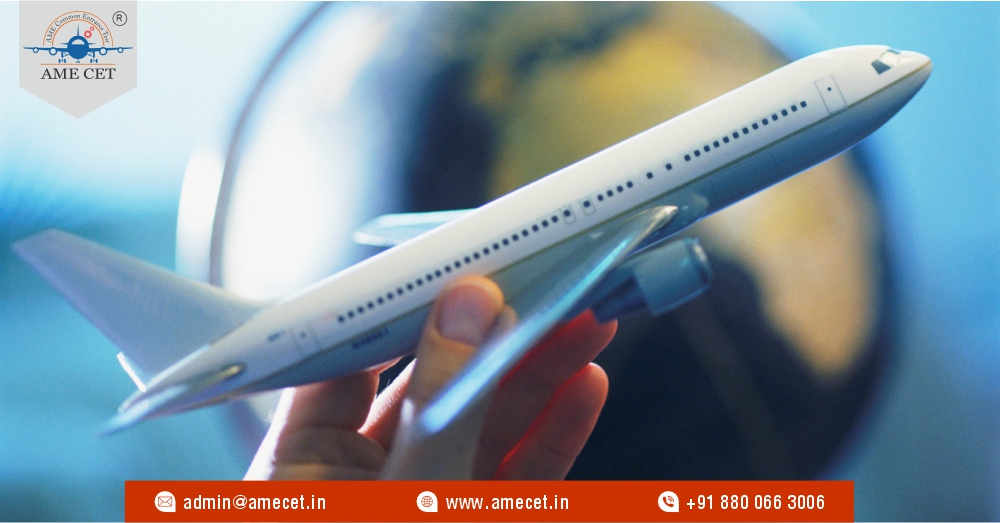
The aviation industry stands as a pillar of modern global connectivity, influencing economic growth, technological advancement, and international cooperation. Recent efforts to elevate this sector are proving to be highly beneficial, not only for airlines and passengers but also for broader economic and environmental outcomes.
Economic Growth and Job Creation
One of the most immediate impacts of boosting the aviation industry is economic growth. Aviation plays a crucial role in global trade, tourism, and business travel. As the industry expands, it generates a multitude of jobs, ranging from those directly involved in airline operations to roles in ancillary services such as airport management, maintenance, and aviation-related technology.
In the wake of recent investments in infrastructure and technology, many regions have witnessed a resurgence in job creation. For example, the development of new airport terminals and the upgrading of air traffic control systems have created thousands of construction and engineering jobs. Additionally, the expansion of flight routes and the introduction of new airlines contribute to more employment opportunities in hospitality and transportation sectors.
Economic benefits are not limited to job creation. Enhanced connectivity boosts trade by facilitating the swift movement of goods and services across borders. This has a ripple effect on local economies, as businesses gain access to new markets and consumers have more choices. For instance, the increased frequency of flights between major cities can lead to a rise in business opportunities and tourism, directly impacting local economies.
Technological Innovation
Technological advancements are another significant benefit of elevating the aviation industry. Investments in new technologies are transforming various aspects of air travel, from safety and efficiency to passenger experience. The push for innovation is driving the development of more fuel-efficient aircraft, advanced navigation systems, and cutting-edge airport infrastructure.
One notable area of advancement is in sustainable aviation technology. With a growing focus on reducing carbon emissions, the industry is investing heavily in alternative fuels, electric and hybrid aircraft, and improved aerodynamics. For example, several companies are developing electric aircraft prototypes, which could revolutionize short-haul flights by significantly reducing environmental impact.
Additionally, the integration of artificial intelligence and machine learning is enhancing operational efficiency. AI-powered systems are being used for predictive maintenance, optimizing flight schedules, and improving customer service. These innovations not only make air travel safer and more efficient but also contribute to cost savings for airlines and passengers alike.
Environmental Impact and Sustainability
Elevating the aviation industry also brings about important strides in environmental sustainability. As the sector grows, there is an increasing emphasis on reducing its ecological footprint. This includes initiatives to improve fuel efficiency, reduce greenhouse gas emissions, and minimize noise pollution.
The adoption of sustainable aviation fuels (SAFs) is a prime example of the industry's commitment to environmental stewardship. SAFs are produced from renewable resources and can significantly lower carbon emissions compared to conventional jet fuels. Major airlines are already incorporating SAFs into their operations, and ongoing research aims to make these fuels more accessible and affordable.
Moreover, efforts to enhance airport sustainability are gaining traction. Many airports are investing in green infrastructure, such as solar panels, energy-efficient lighting, and water conservation systems. These initiatives not only reduce the environmental impact of airport operations but also set a precedent for other industries to follow.
Passenger Experience and Convenience
Improving the aviation industry also translates into a better experience for passengers. Enhanced technology and infrastructure lead to smoother, more enjoyable journeys. For example, the implementation of biometric screening and advanced security measures can streamline the check-in and boarding processes, reducing wait times and increasing convenience.
In-flight technology is another area seeing significant advancements. Modern aircraft are equipped with high-speed internet, improved entertainment systems, and more comfortable seating options. These upgrades enhance the overall travel experience, making long flights more pleasant and productive.
Additionally, the expansion of routes and increased frequency of flights offer passengers more choices and flexibility. This is particularly beneficial for business travelers who require frequent, reliable connections to various destinations. It also makes international travel more accessible and affordable for leisure travelers.
Global Connectivity and Cooperation
Elevating the aviation industry fosters greater global connectivity and international cooperation. As airlines expand their networks and new routes are introduced, people and businesses can connect more easily across the globe. This increased connectivity supports diplomatic relations, cultural exchange, and collaborative efforts in various fields.
The aviation industry also plays a key role in disaster relief and humanitarian efforts. Improved air travel capabilities enable rapid response to natural disasters and emergencies, facilitating the delivery of aid and resources to affected areas. This global network of connectivity underscores the importance of a robust and efficient aviation sector in addressing global challenges.
Conclusion
In summary, the efforts to elevate the aviation industry are yielding significant benefits across multiple dimensions. From driving economic growth and job creation to advancing technological innovation and environmental sustainability, the positive impacts are far-reaching. As the industry continues to evolve, these advancements will further enhance the passenger experience, support global connectivity, and contribute to a more sustainable future. The ongoing commitment to improving aviation not only benefits the industry itself but also has a profound effect on the global economy and society as a whole.
Category
-
Aircraft Maintenance Engineering (DGCA) (62)
-
(268)
-
Cabin Crew (1)
-
Aerospace Engineering (3)
-
Aeronautical Engineering (2)
-
Airport Management (5)
-
Aircraft Maintenance Engineering (EASA) (6)
-
Airport Ground Staff (1)
-
Commercial Pilot License(CPL) (51)
-
Aircraft Maintenance Engineering (BTech/BE) (1)
-
B.Sc. in Aviation (1)
-
AME CET (5)
